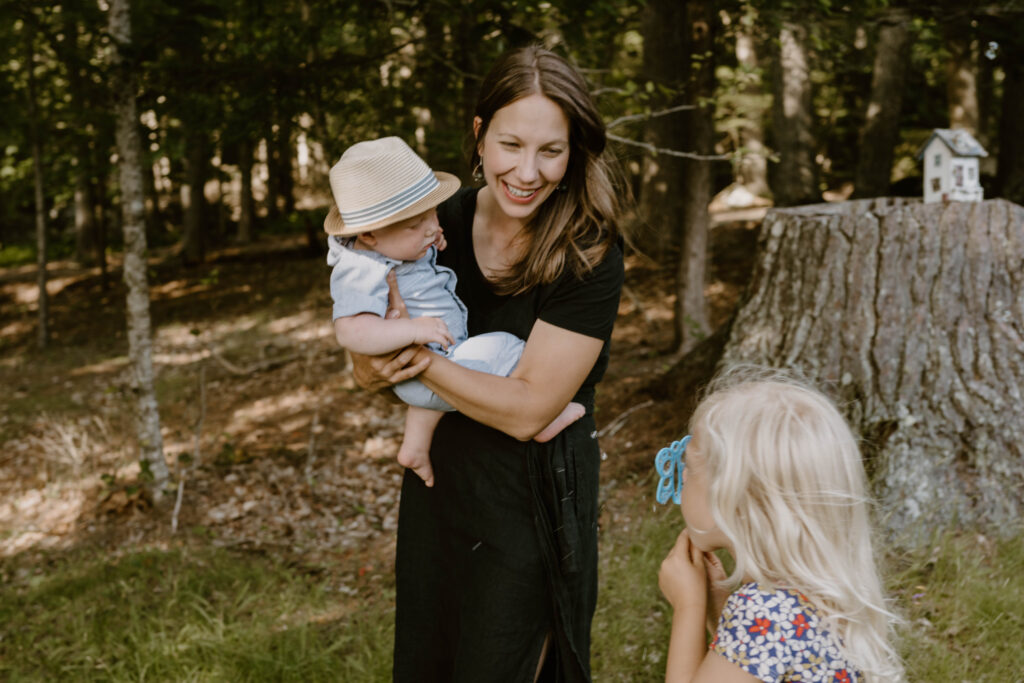Sarah Johnson, BSN, BA, RN-BC is no stranger to the impacts of climate change. As the RN sustainability program manager for Providence St. Patrick Hospital in Missoula, Montana, climate change is the epicenter of much of her work.
“I work to drive climate change mitigation forward in our hospital and throughout the Providence Montana Service Area,” says Johnson. “My work entails decreasing the carbon emissions from operations, educating staff and caregivers, engaging people around this topic, and increasing awareness of the intersection of climate change, health and healthcare. I do a little bit of everything, with a lot of help and a lot of coordination with other folks throughout my facility.”
Climate change is more than a professional focus for Sarah, as she and her husband were two of numerous individuals impacted by Montana’s 2017 Lolo Peak Wildfire, which ended up burning nearly 54,000 acres of land.
“My husband woke me up at around 11:30 at night and said, ‘Sarah, we have to go’ and I said, ‘what do you mean we have to go?’ He brought me to the bathroom window, which looks out at the mountain by our house, and the fire was cresting the top.”
At 37 weeks pregnant, Sarah and her family were evacuated in the middle of the night, and Sarah remained displaced for weeks but continued reporting for duty as a bedside nurse.
“Looking back, I think it would have been perfectly reasonable if I had called off shifts because I was evacuated and had none of the worldly items that I was used to having, but I did choose to go back to work. I’m someone who, if I make a commitment, I show up to that commitment. I had a commitment to my patients.
“The thing I loved the most about working on the floor is that cohesiveness with my coworkers. We were just such a good team. The fact that I found a make-shift home in my coworker’s sister’s living room is a testament to how far a coworker will go to make sure that someone else is well taken care of, and I wanted to give that feeling to my patients.”
Wildfires are just one example of climate hazards that can not only impact individuals physically (for example, smoke particles in the air), but also mentally. This was true for Sarah, who understands how climate change is impacting our lands and what that means for our physical and mental health.
“When you lose your access to the outdoors and are breathing smoke particulates while wildfires burn, your mental and physical health is impacted. You can have difficulty breathing or have increased anxiety or depression or just be sad that it’s gray outside and you can’t play outside if you’re a kid.
“It’s depressing and anxiety-inducing for me when it’s smoky outside. And now that I’ve been working in a realm where I have gotten very familiar with the health impacts of climate change, I worry more than I used to. So, for me it is even more important to take care of my mental health because of my heightened awareness of the risks of climate change.”
Sarah’s experience of being impacted by wildfires is, unfortunately, not an uncommon occurrence. As temperatures continue to rise, so do the risk of wildfires and subsequent negative mental health impacts, but Sarah is using this as motivator in the impact she’s making at Providence St. Patrick Hospital and in the state of Montana. This impact is one that, one day, she hopes to see adopted everywhere.
“I think Providence is really doing a lot of great things around sustainability. I’m proud to be a part of it, and we have a lot of opportunities to continue doing more. I’m passionate about climate change and sustainability and am excited to be working in this field – one I think will be increasingly important in the future.”
Learn about the sustainability work at Providence St. Patrick Hospital and more about the connection between mental health and climate change.






